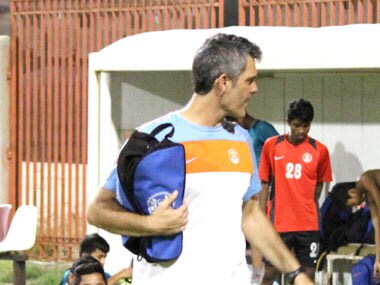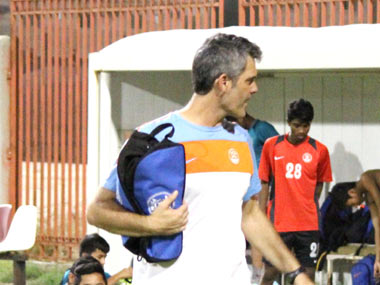With FIFA’s U-17 World Cup three years away, hosts India have a golden chance of proving that there is truth and potential in the abundant talent that the country has. The work, though, has to start now and it starts with scouting. Firstpost asked AIFF’s Academies director, Scott O’Donnell over email how preparations for the U-17 World Cup were going, with a special focus on academies and scouting. Do you think India has enough residential academies? I don’t think it is a matter of having enough residential academies, it is about giving our talented players the opportunity to fulfill their potential. Our academies do not have to be residential. The AIFF has a few academies but do you think that they should have stringent rules and criteria for the private academies that are run in the country? For eg: a minimum number of pitches, coaches etc? It is difficult for AIFF to monitor all of the academies across India but we are looking into a process whereby we can give accreditation for those academies that satisfy certain criteria. Most of the kids who get selected for the AIFF academies are from national level tournaments. What about the rest of the kids who for some reason don’t make it there? For eg: a brilliant player may never make it because the rest of his school team is really bad? We are always open to welcoming new talented players into the academies. While our main selections are done via the national age group tournaments, we do have our scouts across the country constantly looking for talented players. When we get recommendations we invite the players for trials. We are constantly looking for good players, which is why we always leave spots for new players that may be identified at a later date. Who decides/has the final say on which children should enter AIFF’s academies? I do, in consultation with my academy coaching staff. How many times is a kid scouted before he gets picked? Players will get selected when the coaching staff and I believe he is good enough for the academy. How different is India’s scouting and academy culture compared to other places in the world you’ve worked in. What is our immediate need? Every country has different systems. We are doing the best that we can at the moment. It can always be better. Looking ahead to 2017, shouldn’t the AIFF concentrate on scouting children only in that age group (those who qualify for U-17 in 2017) for a while? Most of their academies are age-group based — shouldn’t that be scrapped to accommodate 10-13 year old players in every academy? We are currently planning for the 2000 born boys but that does not mean we can forget about the other boys of different age groups. What happens after 2017? We have to ensure that all age groups are taken care of to ensure the continuous development of Indian football. [caption id=“attachment_1371921” align=“alignleft” width=“380”]  Scott O’Donnell. AIFF[/caption] What happens if a kid is exceptionally talented but can’t make it to an academy for some reason? Is there a backup training plan for such instances? The player could continue training with their respective clubs or state associations but if he is not training regularly and playing games regularly, it will be difficult for him.
Firstpost asked AIFF’s Academies director, Scott O’Donnell over email how preparations for the U-17 World Cup were going, with a special focus on academies and scouting.
Advertisement
End of Article
Written by Pulasta Dhar
If there is one place Pulasta Dhar wanted to live, it would be next to the microphone. He writes about, plays and breathes football. With stints at BBC, Hallam FM, iSport, Radio Mirchi, The Post and having seen the World Cup in South Africa, the Manchester United fan and coffee addict is a Mass Media graduate and has completed his MA in Broadcast Journalism from the University of Sheffield." see more


)

)
)
)
)
)
)
)
)



